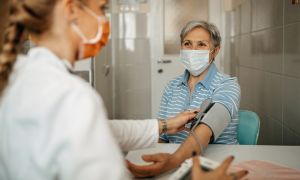Always be prepared to identify yourself as a diabetic, in waiting areas, long lines or areas where you are inconvenienced to have a meal or take your medication.
When travelling, always have glucose tablets or orange juice at hand.
Never take medication for diabetes if you are not sure when your next meal is.
Never take some one else’s' medication.
Know the side effects of your medications.
Know the warning signs for glycemic attack, when your sugar is low or when it’s high.
Structure a plan with your primary care provider and pharmacist to have refills, avoid empty prescriptions
Personal Care: Diabetes and physical activities goes hand in hand, control of diabetes is better managed when the individual engages in physical activities, walking, running, gardening, swimming, etc.
Enjoy eating more vegetables and fruits, drink sugar free water more often than sugary drinks.
Monitor glucose levels with a home tester, keep a diary with your readings and provide a summary to your care provider
Skin care is essential. Choose a day of the month when you do a full skin examination pay attention to limbs, toes or areas where you may not notice day to day.
Lubricate dry skin well, and pat dry areas where moisture is constant, pubic are essentially.
If you use needles, avoid using dirty needles, do not reuse needles, and do not share needles. Dispose needles in a container that is not accessible by children or for removal. Ask your pharmacy for recommendations on proper disposal.
Continue Learning about Living with Diabetes
Important: This content reflects information from various individuals and organizations and may offer alternative or opposing points of view. It should not be used for medical advice, diagnosis or treatment. As always, you should consult with your healthcare provider about your specific health needs.



